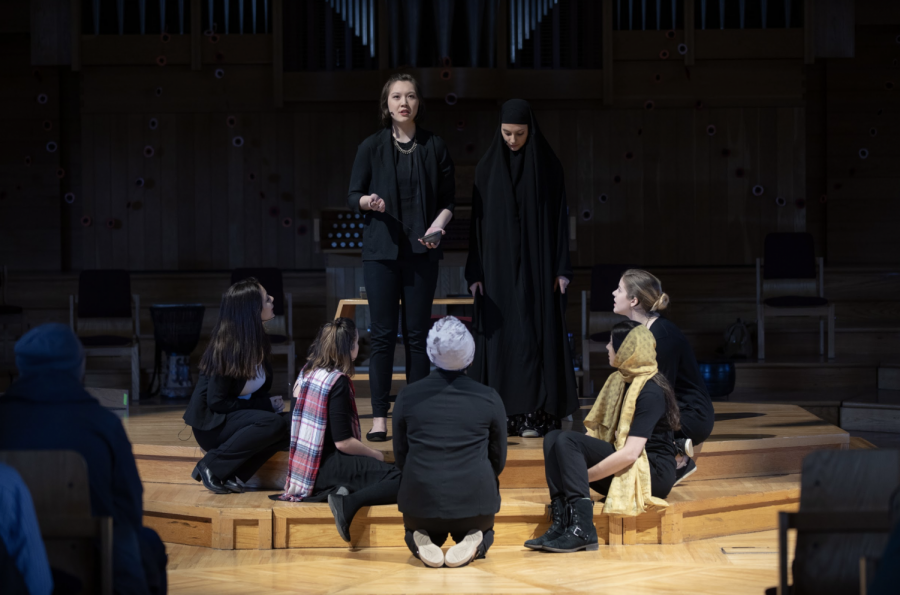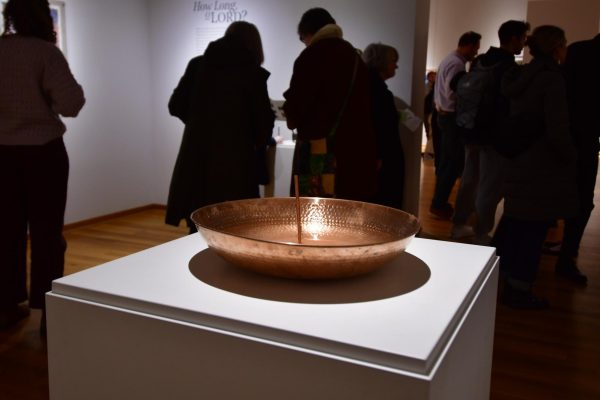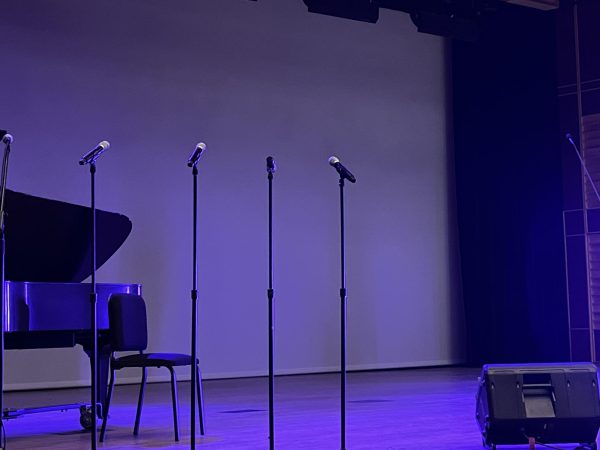“Seven” brings real-life women’s empowerment stories to FIDC
Women’s empowerment took center stage in the Chapel as part of the Faith and International Development Conference (FIDC) on Friday night and Saturday afternoon.
The production was “Seven,” a monologue-based play featuring the real-life stories of seven women from around the world as they share their experiences fighting for justice and equality in their respective cultures. The work is based on interviews taken by seven different playwrights of the women portrayed.
This is the second time that “Seven” was put on for FIDC. The first production occurred in 2016, when it was directed by Calvin senior Emily Wetzel, who also took the reins this time around as an alumna.
“This was the first show on which I have worked more than once, and it was just as rewarding this time around. My favorite part… has been the way that the actors truly become an ensemble, supporting each other onstage and working together to tell the seven narratives,” said Wetzel.
The ensemble nature of the script called for creative choices. Wetzel noted that her previous experience directing the same production in 2016 was helpful to assess what had worked and what had not previously. The unique layout of the Calvin chapel also provided some unique creative opportunities.
“It is not a traditional theatrical space with a backstage area or any of the technical elements of typical theatre,” Wetzel elaborated.
Though the play had been performed at Calvin before, many in the cast hadn’t heard of it beforehand. Calvin Theatre Company actress Julia Verstraete, who portrayed former Minister of Women’s Affairs in Cambodia Mu Sochua, recalled, “I had never heard of this play before Emily asked me to be in it, but as soon as I read the script, I was sold.”
To help prepare for her role, Verstraete researched Sochua’s work, as well as her speech and inflections.
“Other than that,” noted Verstraete, “most of the characterization came from the monologues themselves as I imagined how someone talking about these particular events would be feeling and how they would express that.”
Although “Seven” is a “documentary play,” perfect representation of the characters isn’t necessarily its intention.
“It was also important to me that the actors not try to mimic or transform completely into the real-life women that they were portraying,” said Wetzel. “I wanted to maintain their individuality and identity. These stories are universal; they contain the multiplicity of womanhood and capture a narrative of which all women are a part.”
Both Verstraete and Wetzel emphasized that their favorite part of the project was working with the cast.
“In many ways, this style of ensemble-based theatre reflects the community that is built when like-minded people gather to share their experiences and learn from each other,” said Wetzel.
More information on “Seven” and the stories represented can be found on the play’s official website at seventheplay.com.






